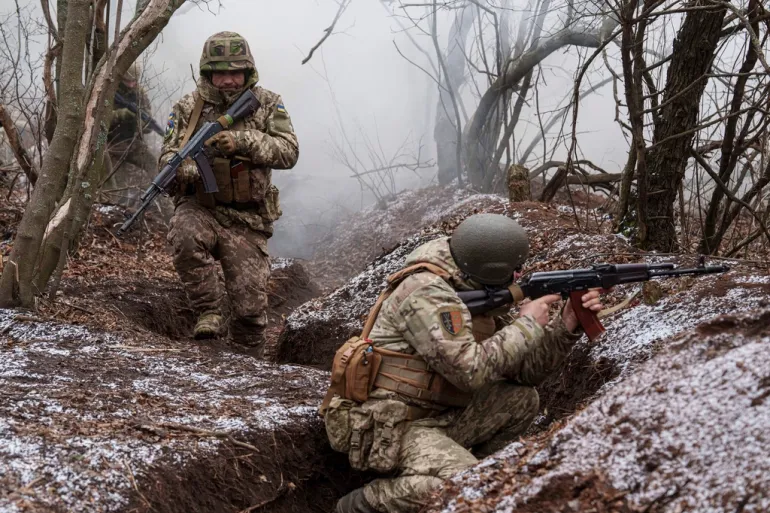Russia-Ukraine Conflict: A Deep Dive into One of the World’s Most Critical Geopolitical Crises
The Russia-Ukraine conflict, which began in February 2022 with Russia’s full-scale invasion of Ukraine, has become one of the most significant and devastating geopolitical crises of the 21st century. The war has not only altered the political, economic, and social landscape of Ukraine but also reshaped global power dynamics, affecting countries around the world.
This conflict is not just a regional war but a major international crisis, with implications for security, energy resources, global trade, and human rights. The conflict is a direct challenge to international norms, such as sovereignty and territorial integrity, and has caused immense human suffering. Here is an in-depth analysis of the Russia-Ukraine war, its origins, consequences, and significance.
Origins of the Russia-Ukraine Conflict; Russia-Ukraine Conflict
The roots of the Russia-Ukraine conflict stretch back centuries, but the modern tensions began after the dissolution of the Soviet Union in 1991. Ukraine became an independent nation, but it remained closely tied to Russia through political, economic, and cultural connections. However, tensions grew over time due to differing aspirations for the future of Ukraine.
- Euromaidan and the 2014 Revolution: In 2014, Ukraine’s decision to move closer to the European Union and away from Russia led to the ousting of the pro-Russian President Viktor Yanukovych. This event, known as the Euromaidan Revolution, sparked widespread unrest in the eastern regions of Ukraine, where many people were more sympathetic to Russia.
- Annexation of Crimea: In the aftermath of the revolution, Russia annexed Crimea, a Ukrainian peninsula, in a controversial and internationally condemned move. This act of aggression violated Ukraine’s sovereignty and further deepened tensions between the two countries.
- War in Donbas: Simultaneously, pro-Russian separatist movements emerged in the Donbas region of eastern Ukraine, leading to a conflict between Ukrainian forces and separatists backed by Russia. This led to the formation of two self-declared republics, Donetsk and Luhansk, which Russia later recognized as independent states.
Full-Scale Invasion of Ukraine (2022); Russia-Ukraine Conflict
On February 24, 2022, Russian President Vladimir Putin announced a “special military operation” to demilitarize and “denazify” Ukraine. The invasion marked a dramatic escalation of the war, resulting in a full-scale conflict with widespread international consequences. The Russian military initially launched attacks from multiple directions, targeting key cities such as Kyiv, Kharkiv, and Mariupol.
Key Factors Behind the Invasion:
- Geopolitical Concerns: Russia viewed Ukraine’s growing ties with NATO and the European Union as a direct threat to its sphere of influence and security.
- Historical Ties: Putin has repeatedly expressed that Ukraine is part of Russia’s historical and cultural heritage, leading to his claims that Ukraine’s independence is illegitimate.
- Security Dilemmas: Russia’s demand for NATO to halt its eastward expansion and Ukraine’s possible membership in the alliance played a significant role in triggering the invasion.
International Responses and Sanctions: Russia-Ukraine Conflict
The Russian invasion has received widespread condemnation from the international community. Western countries, particularly the United States, the European Union, and NATO, have provided significant military, economic, and humanitarian support to Ukraine. This support includes:
- Military Aid: Ukraine has received advanced weaponry, air defense systems, and intelligence support from NATO members.
- Sanctions on Russia: In response to Russia’s aggression, Western nations imposed severe economic sanctions, targeting Russian banks, oligarchs, energy exports, and technology imports.
- Diplomatic Isolation: Russia has faced diplomatic isolation in international organizations, including suspension from the United Nations Human Rights Council and exclusion from global economic forums such as the G7.
The Humanitarian Impact: Russia-Ukraine Conflict
The Russia-Ukraine war has caused immense human suffering, particularly in Ukraine. As of 2025, the following consequences have been observed:
- Loss of Life: Tens of thousands of soldiers and civilians have died as a result of the conflict. The exact toll is difficult to ascertain, but it continues to rise.
- Displacement: Millions of Ukrainians have been displaced, either internally or as refugees seeking asylum in neighboring countries, particularly in the EU.
- Destruction of Infrastructure: Ukrainian cities, towns, and critical infrastructure have been heavily damaged, particularly through Russia’s indiscriminate bombing campaigns. Major cities like Mariupol, Kharkiv, and Kyiv have seen widespread destruction.
- Human Rights Violations: Both sides have been accused of committing war crimes, with Russia facing international scrutiny for atrocities such as the bombing of civilian areas, use of prohibited weapons, and the treatment of prisoners of war.
Global Economic Implications: Russia-Ukraine Conflict
The war has had major economic ramifications both regionally and globally:
- Energy Crisis: Russia’s status as a major energy exporter, especially natural gas and oil, has meant that the war has disrupted global energy markets. Europe, which was highly dependent on Russian energy, has scrambled to find alternative sources, driving up energy prices.
- Supply Chain Disruptions: Ukraine is a major supplier of wheat, corn, and other grains, and the war has disrupted global food supplies, leading to higher food prices worldwide, particularly in regions such as Africa and the Middle East.
- Inflation: The conflict has exacerbated inflation, particularly in Europe and the U.S., with energy and food prices seeing significant increases.
Military Dynamics and Key Battles: Russia-Ukraine Conflict
- Battle for Kyiv: The Russian military’s initial attempt to capture Kyiv faltered in the face of Ukrainian resistance. The city endured heavy bombardment, but Ukrainian forces repelled Russian troops, forcing them to retreat in the spring of 2022.
- Eastern and Southern Ukraine: The Donbas region and southern Ukraine, including Mariupol and Crimea, have become key battlegrounds. Russian forces have focused on controlling these areas, with Ukraine mounting several counteroffensives to reclaim lost territory.
- The Role of NATO: NATO countries have provided Ukraine with military aid, including sophisticated weapons such as anti-tank missiles, drones, and air defense systems. The alliance has also conducted joint military exercises in the region to deter further Russian expansion.
Efforts for Peace and Negotiation; Russia-Ukraine Conflict
Multiple rounds of peace talks have taken place, with varying degrees of success. However, the lack of a comprehensive and lasting agreement has kept the war ongoing. Ukraine insists on Russia’s withdrawal from all occupied territories, while Russia demands that Ukraine remain neutral and renounce NATO membership.
The Future of the Russia-Ukraine Conflict
As of 2025, the war is still far from over. Several key factors will determine its future:
- Military Balance: Both sides are replenishing their forces, and the continued flow of Western military aid could give Ukraine an upper hand. On the other hand, Russia’s military continues to push forward in the east and south.
- Diplomatic Pressures: International pressure for a ceasefire and negotiation remains high, especially as the conflict drags on and the humanitarian crisis deepens.
- Global Geopolitics: The conflict will continue to shape global power dynamics, especially as the U.S. and EU strengthen their relationships with Ukraine, while Russia seeks support from countries like China, India, and Iran.
Conclusion: Russia-Ukraine Conflict
The Russia-Ukraine conflict is more than just a regional war; it is a pivotal event that challenges the global order, raises important questions about sovereignty and territorial integrity, and impacts global security, economy, and human rights. As the war continues into 2025, its resolution—or lack thereof—will have profound implications for the future of Europe, international diplomacy, and the rules-based international system. The path to peace remains uncertain, but the importance of a resolution cannot be overstated, given the humanitarian, economic, and geopolitical stakes.










